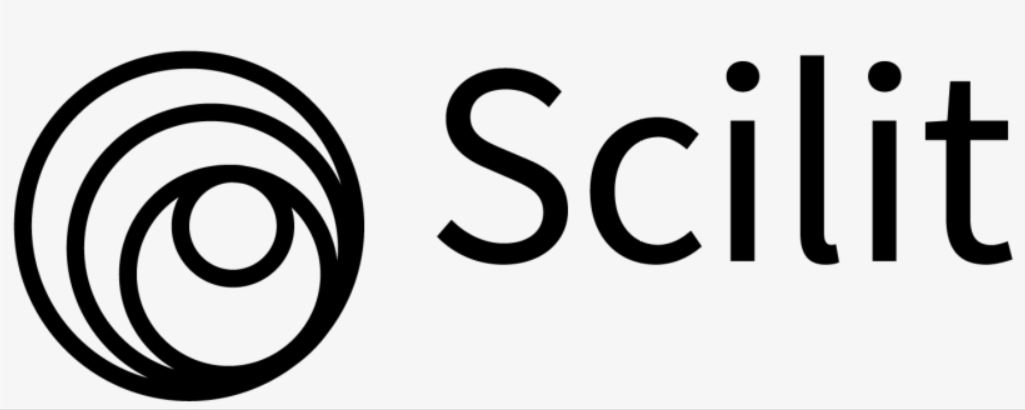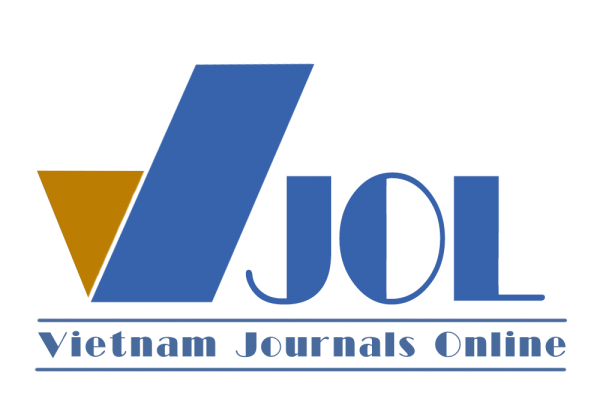
ISSN Print: 2525-2208 ISSN Online:
Website: https://vnjhm.vn
Email: tapchikttv@gmail.com; tapchi@kttv.gov.vn
Google-based Impact Factor: 112 Citation h5-index & Ranking
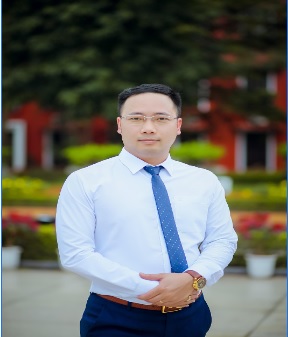
Doan Quang Tri (Acting Editor-in-Chief)
Earth Science and Environmental Engineering
Associate Professor Earth Science, Ph.D. Environmental Engineering, Institute of Earth Sciences, Vietnam Academy of Science and Technology, Hanoi, Vietnam
https://www.researchgate.net/profile/Doan-Tri-2
doanquangtrikttv@gmail.com
+84-98.928.471
0000-0003-2376-3222
WoS: 26, Scopus: 37, Google Scholar: h-index: 17; i10-index: 24
Dr. Doan Quang Tri earned his PhD in Environmental Engineering from Dayeh University, Taiwan. He previously worked as a forecaster at the National Center for Hydro-Meteorological Forecasting (NCHMF) of Vietnam during the 2015–2017 period. He also previously worked on the Editorial Board and as Acting Editor-in-Chief of the Journal of Meteorology and Hydrology under the Vietnam Meteorological and Hydrological Administration during the 2017–2026 period. He is currently affiliated with the Center for Multidisciplinary Monitoring, Institute of Earth Sciences, Vietnam Academy of Science and Technology (VAST). Associate Professor Tri has authored more than 90 publications in international and national journals and conference proceedings, as well as six monographs and reference books and two book chapters.
His main research interests include environmental management, oil spill modeling and response, environmental impact assessment, water quality, river and ocean hydrodynamics, shoreline and coastline change dynamics, meteorology and hydrology, drought, flood and inundation forecasting and early warning, and climate change.
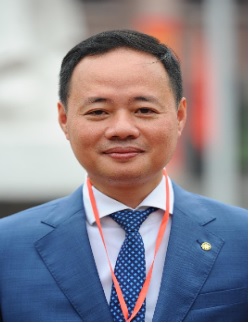
Tran Hong Thai (President of Editorial Board)
Environmental Science
1. Professor, Institute of Meteorology, Hydrology, Environment and Marine Sciences, Hanoi, Viet Nam
2. Deputy Secretary of the Party Committee and Standing Vice President of the Vietnam Academy of Science and Technology (VAST)
https://www.researchgate.net/profile/Tran-Thai-4
tranthai.vkttv@gmail.com
h-index: 7, Scopus: 9 Google scholar: https://scholar.google.com.vn/citations?hl=vi&user=RGJC-rkAAAAJ
Mr. Tran Hong Thai is currently a Professor in Earth Sciences and serves as Deputy Secretary of the Party Committee and Standing Vice President of the Vietnam Academy of Science and Technology. He previously held the position of Vice Minister of the Ministry of Science and Technology of Vietnam and served as Vice President of the Asian Meteorological Association, Regional Association II (RA-II) during the 2021–2024 term. His areas of expertise include mathematical modeling, hydrology, water resources, climate change, and environmental sciences.
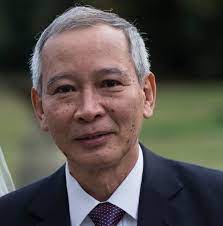
Tran Thuc (Editorial Board)
Hydrology, Coastal Engineering, Climate Change
1. Professor, Vietnam Institute of Meteorology, Hydrology and Climate Change, Ha Noi, Viet Nam;
2. Chairman, Viet Nam Association of Meteorology and Hydrology, Ha Noi, Viet Nam.
https://www.researchgate.net/profile/Thuc-Tran-7
tranthuc.vkttv@gmail.com
0000-0003-2130-1702
h-index: 9, Scopus: 9
Dr. Tran Thuc is a professor in water resources. He is the Chairman of Viet Nam Association of Meteorology and Hydrology, Vice Chairman of the Viet Nam National Advisory Council on Climate Change, and Chairman of the Viet Nam National Committee for the International Hydrological Program (UNESCO/IHP). His major is in hydrology, water resources engineering and management, climate adaptation and mitigation policy, and disaster risk reduction.

Mai Trong Nhuan (Editorial Board)
Earth Science, Environmental Geology, Climate Change, Sustainable Development
Professor, Vietnam National University (VNU), Hanoi, Viet Nam
https://www.researchgate.net/profile/Mai-Nhuan
mnhuan@yahoo.com; nhuanmt@vnu.edu.vn
0000-0002-3177-1997
Dr. Mai Trong Nhuan is a professor in Earth Science (geology). He is the Chairman of Viet Nam Association of Geochemistry, Vice Chairman of the Viet Nam Union of Geological Sciences, Vice Chairman of the Viet Nam National Advisory Council on Climate Change. He was a leader of various National and International projects on Environmental Geology, Climate Change response, sustainable natural resource use and management, environmental impact assessment, and protection. His major is in Environmental Geology, Climate Change response, disaster mitigation, natural resource management, Sustainable Development.
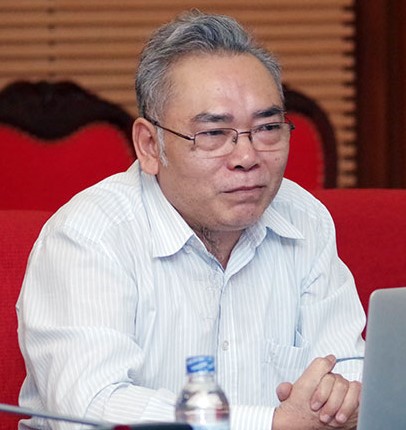
Phan Van Tan (Editorial Board)
Regional Climate Modeling and Climate Change, Meteorology
Professor, VNU University of Science (HUS), Vietnam National University (VNU), Hanoi, Viet Nam
http://hmovnu.ndvol.com//vn/u/tanpv
phanvantan@hus.edu.vn; tanpv@vnu.edu.vn
0000-0003-0756-1217
https://scholar.google.com/citations?hl=en&user=dfv9xdcAAAAJ
Dr. Phan Van Tan is a Professor in Earth Science, Leader of the Regional Climate Modelling and Climate Change (REMOCLIC) team, under the VNU University of Science (HUS), Vietnam National University, Hanoi (VNU). He has many years of experience in weather and climate research, focusing mainly on climate change, regional climate modeling, seasonal forecasting, and data analysis. He was a leader of various National and International projects on Extreme Climate Events (ECE) and their impacts on Vietnam, seasonal prediction of ECEs for Vietnam, High-Resolution Climate Projection for Southeast Asia, dynamical seasonal tropical cyclone prediction, drought over Vietnam, and Southeast Asia, etc. Currently, he is a key member of the Southeast Asia Regional Climate Initiative (SEARCI), networking of scientists within the Southeast Asia region, involving the Southeast Asia Regional Climate Downscaling (SEACLID/CORDEX SEA) project.
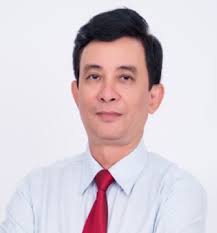
Nguyen Ky Phung (Editorial Board)
Environmental Science, Marine Science
Professor, University of resources and environment
https://www.researchgate.net/profile/Nguyen-Ky-Phung
Kyphungng@gmail.com
h-index: WoS: 16,22, Scopus: 21, Citation: 286 Google Scholar: 10
Professor Nguyen Ky Phung has been working as a Vice President of Thu Duc City People’s Committees, HCM City, Vietnam. He completed his BSc. in Oceanography and then pursued a Ph.D. in Oceanography at St. Petersburg Hydro-meteorological University, Russia in 1993, he graduated International Economic from Saint Peterburg - Russia this year. For eight years, he was Vice Director of the Department of Science and Technology – DOST, Ho Chi Minh City, VietNam, and Director of Institute for Computational Science and Technology - ICST, Vietnam. He also was a Board member of the National Marine Science and Technology Program, Ministry of Science and Technology; Environmental Protection and Climate Change Program, Department of Science and Technology, HCMC, Vietnam; Water and Environment Association, HCMC, Vietnam and also served for 4 years on the Board of the Sub Institute of Hydro-meteorology and Environment of South Vietnam, Ministry of Resources and Environment; 8 years on the Board of Faculty of Environment, University of Science, VNU-HCM.
Achievements track record:
01/2021–Ongoing: Vice President of Thu Duc City People’s Committees, HCM City, Vietnam.
2013–2020: Vice Director of Department of Science and Technology, HCMC
Director of Institute for Computational Science and Technology, Ho Chi Minh City Vietnam.
2009–2013: Vice Director of Sub Institute of Hydro-meteorology and Environment of South Vietnam, Ministry of Resources and Environment, Vietnam.
2001–2009: Vice Dean of Faculty of Environment, University of Sciences, Vietnam National University, Ho Chi Minh City, Vietnam.
Professor Nguyen Ky Phung involves in a variety of national and international research and development projects, he was the Project Coordinator of 49 research projects, the author and co-author of 157 papers, and also the author of ten books.
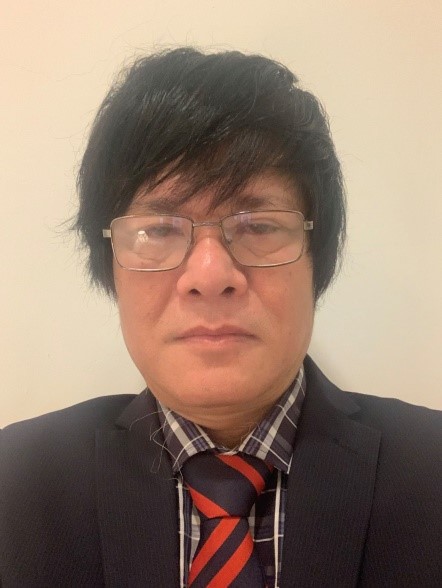
Phan Dinh Tuan (Editorial Board)
Chemical Engineering, Environmental Engineering, Material Science and Technology
Professor, Hochiminh City University of Natural Resources and Environment, Ho Chi Minh City, Viet Nam
https://www.researchgate.net/profile/Tuan-Phan-Dinh-3
phantuan23bhht@gmail.com
0000-0002-9363-3434
https://scholar.google.com.vn/citations?hl=vi&user=w5llDOcAAAAJ
Dr. Phan Dinh Tuan is a Professor in Chemical, Environmental Engineering, and Material Science and Technology. He is Vice-Chair of the Vietnam Association of Natural Products, Chair of the Applied Research Institute for Natural Resources, Materials, and Environment. He was the Leader of different National and International Projects in Chemical, Environmental, and Sustainable Engineering, as well as Educational and Manpower training. He is now a key member of the National Research Program for Environmental Industry. His research focuses on Chemical, Environmental Engineering, Material Science and Technology, and Sustainable Development.

Nguyen Kim Loi (Editorial Board)
GIS, Hydrology, Climate Change
Professor, Research Center for Climate Change (RCCC) - Nong Lam University, Ho Chi Minh City, Vietnam
https://www.researchgate.net/profile/Loi-Nguyen-15
ngkloi@hcmuaf.edu.vn
0000-0002-3063-6910
https://scholar.google.com/citations?hl=en&user=oCrN8lkAAAAJ
Professor Nguyen Kim Loi is a Director of Research Center for Climate Change (RCCC), and Head of the Department of Applied Geomatics, Nong Lam University, Ho Chi Minh City, Vietnam. His current research involves GIS applications and related spatial techniques for watershed modeling, flooding warning system, soil, and water assessment tool (SWAT) model, soil erosion control, land use mapping, and climate change. In addition, he has been a frequent contributor to several international agencies such as CIDA, ACIAR, WWF, and IUCN.
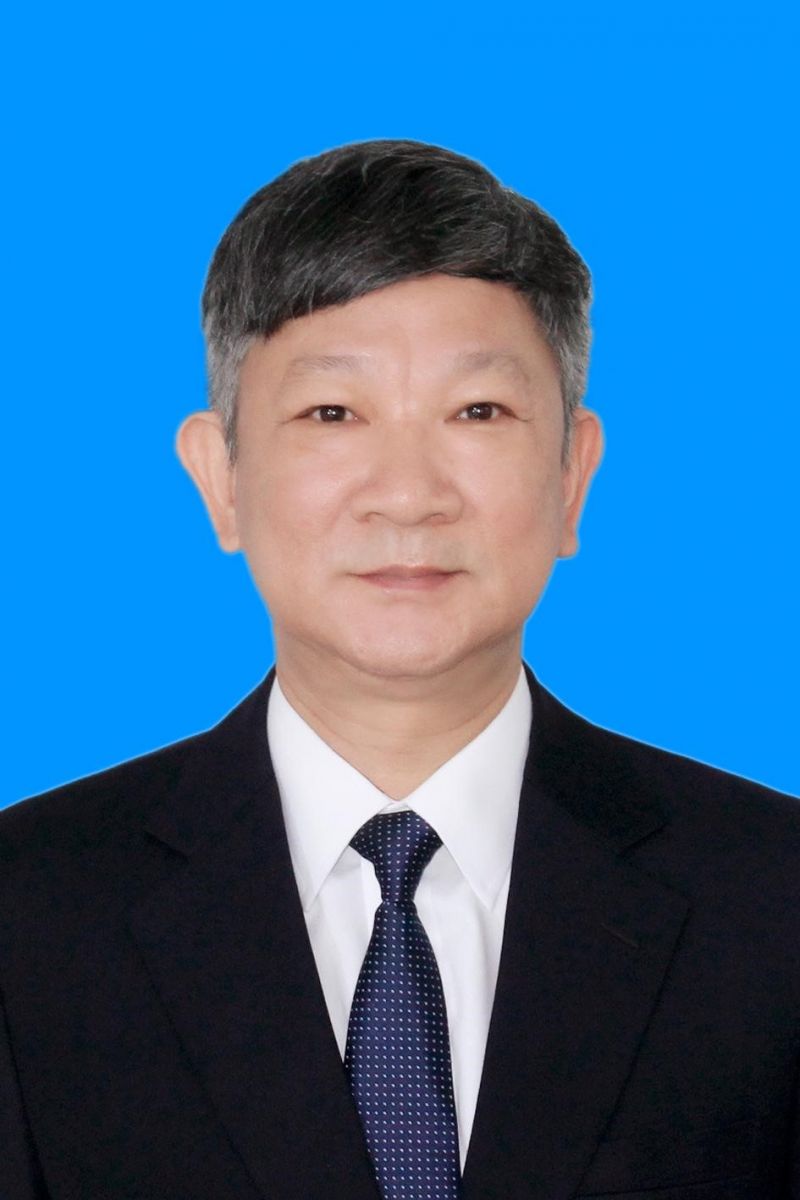
Nguyen Van Thang (Editorial Board)
Meteorology
Associate Professor, Vietnam Institute of Meteorology, Hydrology and Climate change, Viet Nam
nvthang.62@gmail.com
0000-0003-4032-3018
Associate Professor Nguyen Van Thang is now a Director General of Vietnam Institute of Meteorology, Hydrology and Climate change, Viet Nam. His research involves evaluation of summer monsoon climate, studying the characteristics of heavy rainfall, climate change in the Mekong Delta, changes in climate extremes in Vietnam, strengthening capacity for policy research on mainstreaming adaptation to climate change, high-resolution simulations for Vietnam, and evaluation of current climate, effects of ENSO on autumn rainfall in central Vietnam, climate disasters and climate change in Vietnam: climate change impacts and adaptation in the Water Resources and Agriculture in Vietnam. In addition, he has been a frequent contributor to several international seminars such as the meeting session COP24/CMP14/CMA1.3, The Nineteenth Session of the Intergovernmental Meeting on the EANET (IG19), UNFCCC (COP21) and the 11th session of the Conference of the Parties serving as the meeting of the Parties to Kyoto Protocol (CMP11), (LIMA COP20/CMP10).
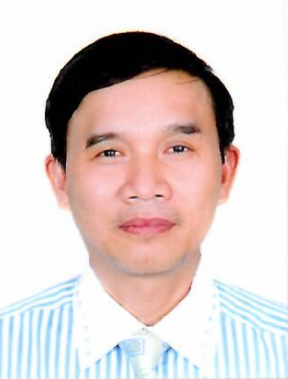
Duong Van Kham (Editorial Board)
Meteorology, Agrometeorology
Associate Professor, Viet Nam Institute of Meteorology, Hydrology and Climate Change, Hanoi, Viet Nam
dvkam.kttv@gmail.com
0000-0001-8489-4256
Duong Van Kham is currently an associate professor of Earth Science. His major has recently been meteorology, agro-meteorology, remote sensing, and GIS.
After graduating, he worked at Bac Bo Delta experimental station for Agricultural Meteorology, under IMHEN. Besides the participation in experimental observation to provide data for specialist skill, making agricultural information in the scale of all country; study and research Photon in photosynthetic radiation, LAI index, soil moisture calculation, constants of evapotranspiration, potential evapotranspiration, plant evapotranspiration calculation by Lizimeter, producing components for some plant varieties such as rice, maize, peanut, soybeans … research of some projects on Meteorology, agricultural meteorology as Research on active radiation distribution in Viet Nam; Research into maize, soybeans productivity forecasting by transfer function model; Participation in VE-86/025 project to enhance capacity in agricultural meteorology by UNDP fund 1997-2004.
From 1997 to 2004, studied for a master's and Ph.D. degree at Nanjing University of Sciences and Technology, China, he studied modern methods, and technology applied in hydrometeorology, and agrometeorology.
Research on applications of remote sensing (RS) and Geographic Information System (GIS) in Hydrometeorology
Applying GIS techniques in agricultural climate resources assessing and agricultural climate zoning in Viet Nam.
Applying remote sensing and Geographic Information System in Hydrometeorology
Applying remote sensing and GIS techniques in rice growth, development monitoring, and production forecasting in the Red River delta through using a new method- MODIS data- to monitor and forecast the rice productivity and yield in Vietnam, etc.
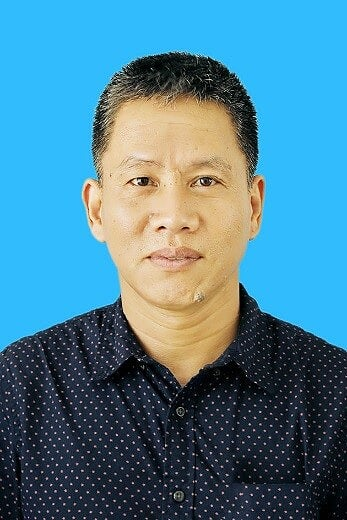
Duong Hong Son (Editorial Board)
Biological and Environmental Sciences
Associate Professor, Water Resources Institute, Hanoi, Viet Nam
https://www.researchgate.net/profile/Duong-Hong-Son
dhson.monre@gmail.com
Dr. Duong Hong Son is an Associate Professor in Earth Science. He is the Director General of the Institute of Water Resources. He is the National Focal Point for SDG6 monitoring in Vietnam. His research focuses on water resources planning, forecasting, and warning, application of remote sensing in water resources, water-induced disaster prevention, control, and climate change impact assessment on national/regional/international river basins.
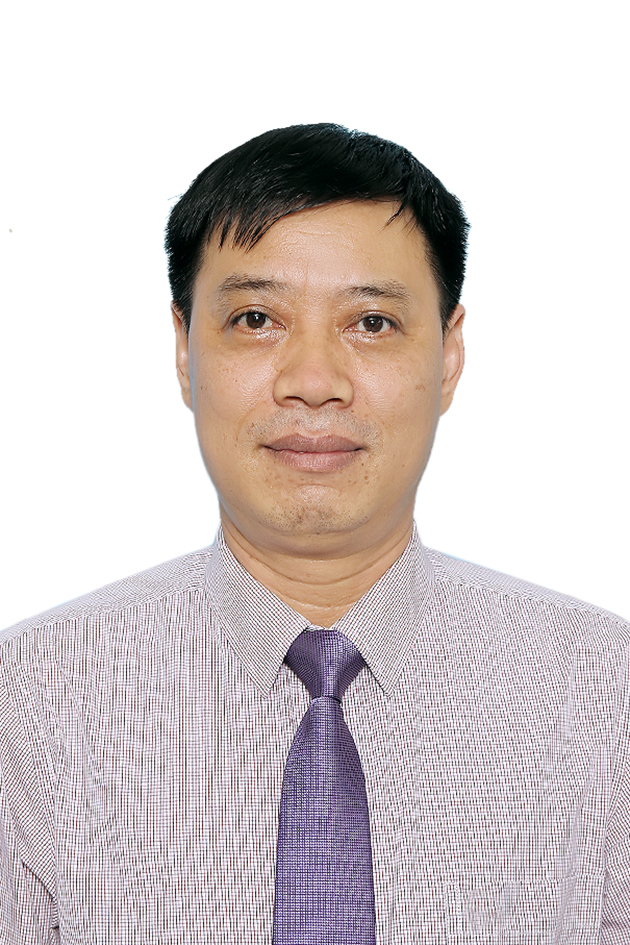
Hoang Duc Cuong (Editorial Board)
Meteorology
Ph.D., Viet Nam Meteorological and Hydrological Administration, Hanoi, Viet Nam
cuonghoangduc@gmail.com
Dr. Hoang Duc Cuong has a doctorate in Meteorology and Climate, Russian Federation (2000). He is currently the Vice Administrator of the Viet Nam Meteorological and Hydrological Administration (VNMHA). His research focuses on Meteorology, Climate, Hydrometeorological Forecasting, and the Physical basis of climate change.

Mai Van Khiem (Editorial Board)
Meteorology
Associate Professor, Viet Nam National Center of Hydro-Meteorology Forecasting (NCHMF), Hanoi, Viet Nam
https://www.researchgate.net/profile/Mai-Khiem
maikhiem77@gmail.com
h-index: WOS: 17, Scopus: 14, Google Scholar: 10
Dr. Mai Van Khiem has a Ph.D. degree in Environmental Engineering from the University of Tokyo, Japan (2010). He is presently Director General of the National Center for Hydro-meteorological Forecasting (NCHMF). His research is focused on weather and climate prediction, climate change, and variability.
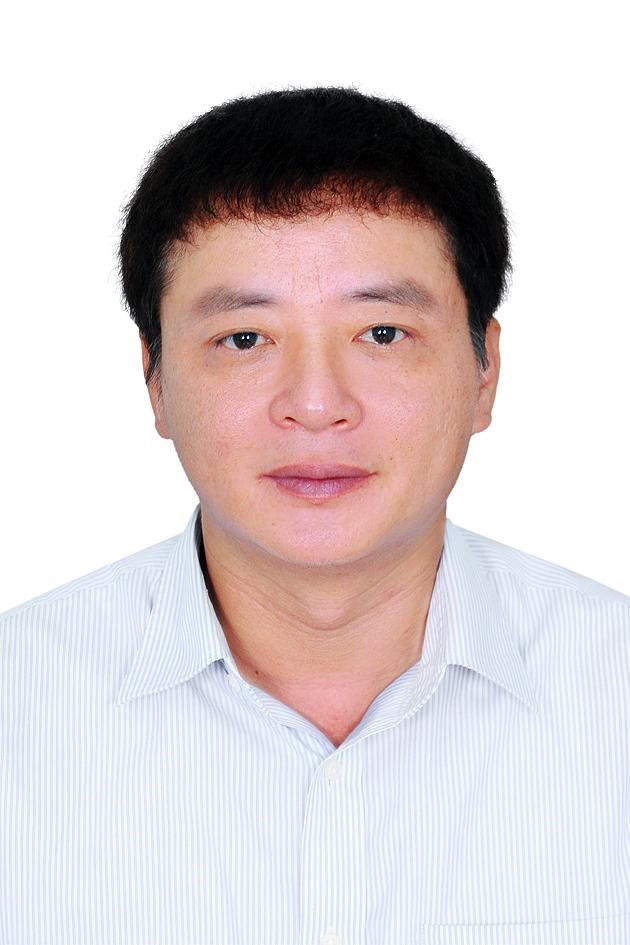
Nguyen Ba Thuy (Editorial Board)
Ocean and Coastal Engineering
Associate Professor, Viet Nam National Center of Hydro-Meteorology Forecasting (NCHMF), Hanoi, Viet Nam
https://www.researchgate.net/profile/Nguyen-Thuy-36
thuybanguyen@gmail.com
h-index: 8, Scopus: 14
Dr. Nguyen Ba Thuy graduated a Ph.D. in Hydraulics and Environmental Engineering at Saitama University, Japan. He was a forecaster at the National Center for Hydro-meteorological Forecasting (NCHMF) in Vietnam from 2010. Dr. Thuy is the author of about 60 papers published in journals and international and domestic conferences. His major research interests are in coastal and ocean engineering, and climate change.
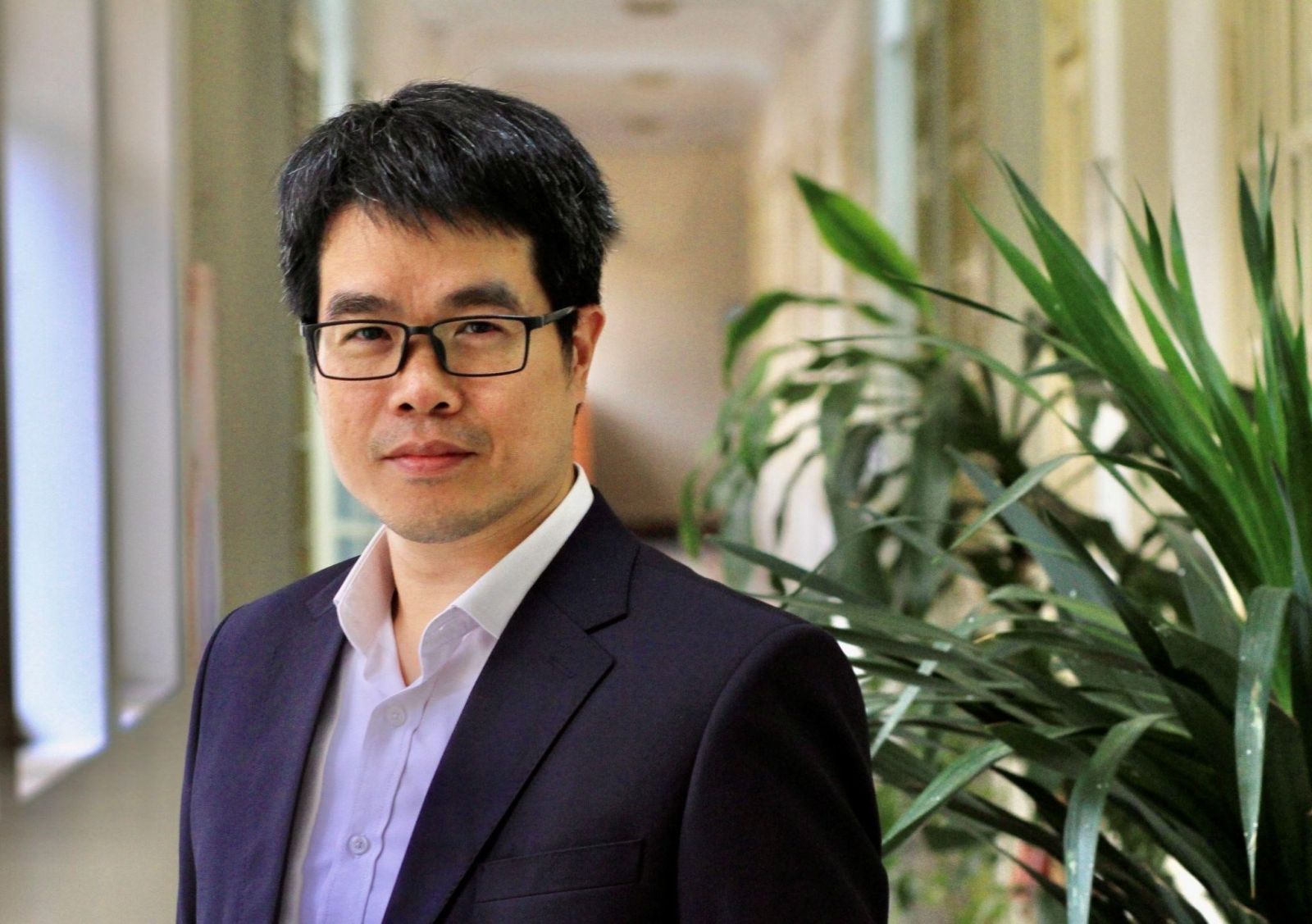
Dinh Thai Hung (Editorial Board)
Environmental Science
Ph.D. Institute of Natural Resources and Environment Training (InNET), Hanoi, Viet Nam
http://en.innet.gov.vn/
dinhthaihuwng2012@gmail.com
Have working experiences with Vietnam governmental ministries and international organizations in policy, program, research and project implementation on human resource development, hydrology, meteorology and natural disaster, environment protection and conservation, environmental assessment, climate change adaptation and mitigation;
Capacity building in hydrological, meteorological and environmental education and training, climate change response in central and provincial levels;
Development and efficient operation in close partnership and network among governmental administration offices and international organizations in environmental protection and conservation, natural disaster prevention and climate change response in Vietnam;
Experience in teamwork organization and management to implement project and research on human resource development, environmental protection, environmental conservation, natural disaster prevention, and climate change response.
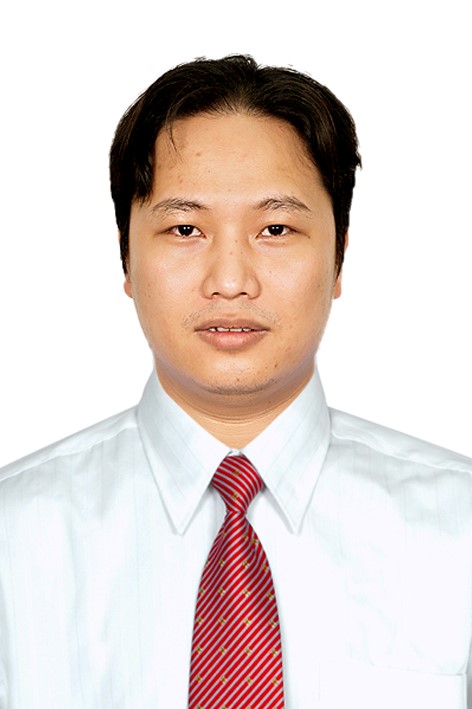
Vo Van Hoa (Editorial Board)
Meteorology
Ph.D., Northern Delta Regional Hydro-Meteorological Center, Viet Nam Meteorological and Hydrological Administration, Hanoi, Viet Nam
https://www.researchgate.net/profile/Vo-Hoa-3
vovanhoa80@yahoo.com
Mr. Vo Van Hoa is Ph.D. in meteorology and climatology. He has worked in numerical weather prediction modeling since 2002. He has good experiments in numerical weather prediction modeling, climate modeling, data assimilation, statistical prediction, model out statistics, and ensemble prediction. He has been publishing many research papers in domestic and international scientific journals related to the above-mentioned topics. He has taught some training courses on using numerical weather prediction products in Severe Weather Forecasting Demonstration Project for Southeast Asia (SWFDP-SeA) of WMO.
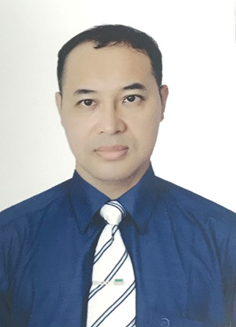
Bach Quang Dung (Editorial Board)
Environmental Science
Ph.D, Vietnam Institute of Meteorology, Hydrology and Environment, Viet Nam
https://www.researchgate.net/profile/Quang-Dung-Bach
dungmmu05@gmail.com
h-index: WOS: 4, Scopus:4, Google Scholar: 10
Dr. Bach Quang-Dung graduated with a Dr. Engineer in Marine Environmental Engineering at Mokpo National Maritime University, South Korea. He worked at Vietnam Institute of Meteorology, Hydrology and Climate Change in Vietnam during 2009-2018. He has worked at Vietnam Journal of Hydrometeorology during 2019-2021, Vietnam Meteorological and Hydrological Administration. Recently, he is an advisor for circulatory-organic agriculture. Dr. Quang-Dung is the author of 48 papers published in journals and reference books. His major research interests include environmental technology, wastewater treatment, water quality, plankton dynamic, microbiological applications, circulatory-organic agriculture, and climate change.
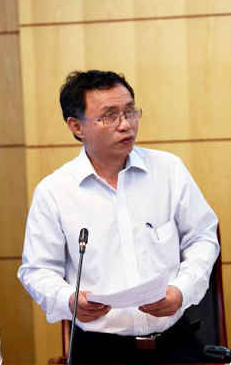
Nguyen Dac Dong (Editorial Board)
Geology, Earth science, Environmental science
Ph.D., Institute of Earth Sciences and Environment, Vietnam Union of Geological Sciences
Viet Nam
nddongtnmt@gmail.com
Dr. Dong is the Director of the Institute of Earth Sciences and Environment, the Vice President - General Secretary of Vietnam Union of Geological Sciences, and former Director of the Department of Science and Technology, Ministry of Natural Resources and Environment (MONRE). Dr. Dong has also been the Deputy Chairman of the Program "Science and technology in response to climate change, natural resources and environment management for the period 2011-2015 and the period 2016-2020". Dr. Dong managed a lot of geological and mineral projects, one of them could be mentioned recently as the Exploration of tin - rare metals ores in Dong Ram - La Vi area, Ba Kham commune, and Ba Trang commune, Ba To district, Quang Ngai province.
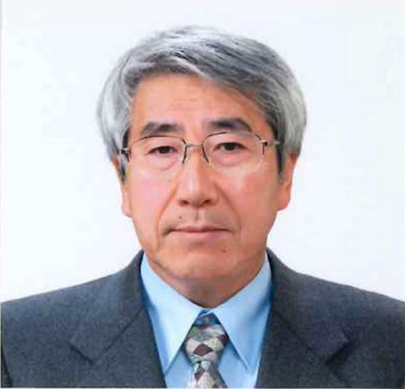
Kazuo Saito (Editorial Board)
Numerical weather prediction, Typhoon, Local wind
1. Professor, Head, Second Laboratory, Research Promotion Department, Japan Meteorological Business Support Center
2. Guest Professor, Atmosphere and Ocean Research Institute, The University of Tokyo
3. Guest Researcher, Department of Observation and data Assimilation, Meteorological Research Institute, Japan Meteorological Agency
https://dpo.aori.u-tokyo.ac.jp/dmmg/people/ksaito/INDEXE.htm
k-saito@jmbsc.or.jp, k_saito@aori.u-tokyo.ac.jp
0000-0001-9011-0729
h-index: WoS: 22, Google Scholar: 32
Dr. Kazuo Saito is the Head of the Second Laboratory, Research Promotion Department, Japan Meteorological Business Support Center. He has guest positions as a Guest Professor at the Atmosphere and Ocean Research Institute, The University of Tokyo, and a Guest Researcher at the Department of Observation and data Assimilation, Meteorological Research Institute, Japan Meteorological Agency. His major is in Numerical weather prediction, Local wind, Typhoon, and Heavy precipitation.

Jun Matsumoto (Editorial Board)
Climatology, Physical Geography
1. Professor, Department of Geography, Tokyo Metropolitan University (TMU), Tokyo, Japan
2. Visiting Principal Scientist, Department of Coupled-Ocean-Atmosphere-Land Processes Research, Japan Agency for Marine Earth Science and Technology, Yokosuka, Japan
jun@tmu.ac.jp
0000-0003-1551-9326
h-index: WoS: 30, Scopus: 31, Google Scholar: 40
Prof. Jun Matsumoto has been engaged in research and education in climatology and physical geography, focusing on Asian and global monsoon climate.

Jaecheol Nam (Editorial Board)
Professor, Administrator of Korea Meteorological Administration (KMA) and PR of the Republic of Korea with WMO
Korea Meteorological Administration (KMA), Meteorological Research Institute (METRI), Seoul National University (SNU), South Korea
https://www.researchgate.net/profile/Jaecheol-Nam-2
jcnam5905@snu.ac.kr
Keunyong Song (Editorial Board)
Professor, Korea Meteorological Institute (KMI), Korea

Lars Robert Hole (Editorial Board)
Ph.D., Norwegian Meteorological Institute, Department of Oceanography and Marine Meteorology, Norway
https://www.researchgate.net/profile/Lars-Hole
Irh@met.no (L.R. Hole)
0000-0002-2246-9235

Sooyoul Kim (Editorial Board)
Coastal and Ocean Engineering
Associate Professor, Center for Water Cycle Marine Environment and Disaster Management (CWMD)/Department of Civil Environmental Engineering and Architecture, Kumamoto University, Japan
http://www.civil.kumamoto-u.ac.jp/sooyoulkim/
sooyoulkim@kumamoto-u.ac.jp
0000-0002-6727-866X
h-index: 10, WoS: 17, Scopus: 21, Google Scholar: 10
In recent days, risks of coastal hazards accelerate due to the further strengthening of typhoons/hurricanes under climate change impact. Also, aspects of the coastal hazard are getting more complex. However, numerical compound models are more petite that are able to solve such coastal floods due to storm surge overflow, wave overtopping/wave runup, river flow, the interaction of surge and river flow, precipitation, and backflow of a sewer system. Those accuracies are not enough. Since a coupled model of the surge, wave, and tide (SuWAT) was developed in Ph.D., we have been improving and extending SuWAT to a compound model of storm surge overflow, wave overtopping/wave runup, river flow, the interaction of surge and river flow, precipitation, backflow of a sewer system. I have also been looking at climate change impacts on the risk of coastal hazards using SuWAT and machine learning techniques.
Author’s guidelines and journal’s indexes
1. Guidelines for the authors
1.2. Example of Publication Template
1.3. JHM_references_guide
2. Price per published article:
For authors working inside and outside the Hydro-Meteorology field: 3,000,000 VND/article; Support for authors who are PhD students, Master students, and students, it is 2,500,000 VND/article.
Declare all other charges: language editing fees, membership fees, print volume issue costs, and other supplementary charges.
3. Lookup list of indexes of the Journal of Hydro-Meteorology
These indexes are referred to in some materials as follows:
3.1. The state council for the Professorship in 2017 (Score 0-0.5)
3.2. Interdisciplinary Council of Earth Sciences - Mining in 2019 (Score 0-0.5)
3.3. Council on Water Resources in 2019-2025 (Score 0-1.0)
3.4. Interdisciplinary Council of Earth Sciences - Mining in: 2017-2019 (Score 0-0.5); 2020-2023 (Score 0-0.75); 2024-2025 (Score 0-1.0);
3.5. Council of Mechanics in 2020-2025 (Score 0-0.5)
4. Reference for updated index ISSN of Journal of Hydro-Meteorology
Publication Ethics and Malpractice Statement
Journal of Hydro-Meteorology (JHM) is a leading pioneer in publishing both Vietnamese and English articles in the field of hydrometeorology, technology, water resources, and related topics including water, air, soil pollution, hazardous waste issues, water irrigation, Ecohydrology, Climatology, Agrohydrology, Geomorphology, Environment, Climate change, etc. To become more professional, the Journal is committed to meeting higher standards of ethical behavior during the publishing process.
Our publication ethics and publication malpractice statements are subjected to the guidance of the Committee on Publication Ethics (COPE), an organization that provides explicit guidelines and resources on publication ethics and publication misconduct.
1. Duties and Responsibilities of Publishers
JHM is making efforts to fulfill all obligations of publishers that are prescribed as below:
1. Editorial decisions on manuscript submissions are objective and final, solely based on professional judgment.
2. The integrity of all academic and research records is maintained and reviewed regularly.
3. JHM is monitoring the ethics of the Editor-in-Chief, Associate Editors, Editorial Board Members, Reviewers, Authors, and Readers.
4. JHM is always checking plagiarism and fraudulent data issues involving the submitted manuscript.
5. JHM is always willing to publish corrections, clarifications, and retractions involving its publications as and when needed.
2. Duties and Responsibilities of Editors
1. The Editors of the Journal have the authority to do as follows:
2. The Editors of the journal should have the full authority to reject/accept a manuscript.
3. The Editors of the journal should maintain the confidentiality of submitted manuscripts under review or until they are published.
4. The Editor-in-Chief should decide on submitted manuscripts, whether to be published or not with other editors and reviewers.
5. The Editors of the journal should preserve the anonymity of reviewers.
6. The Editors of the journal should disclose and try to avoid any conflict of interest.
7. The Editors of the journal should maintain academic integrity and strive to meet the needs of readers and authors.
8. The Editors of the journal should be willing to investigate plagiarism and fraudulent data issues and willing to publish corrections, clarifications, retractions, and apologies when needed.
9. The Editors of the journal should limit themselves only to the intellectual content.
10. The Editors of the journal must not disclose any information about submitted manuscripts to anyone other than the corresponding author, reviewers, potential reviewers, other editorial advisers, and the publisher, as appropriate.
11. Unpublished materials disclosed in a submitted paper will not be used by the editor or the members of the editorial board for their own research purposes without the author's explicit written consent.
3. Duties and Responsibilities of Reviewers
The Reviewers of the Journal have the authority to do as follows:
1. Maintain the confidentiality of manuscripts they are invited to review.
2. Provide comments in time that will help editors judge the quality of the submitted manuscript to be published or not.
3. Comments against each invited manuscript should be technical, professional, and objective.
4. Treat the manuscript received for peer reviewing as confidential and must not use the information through peer review for any personal purpose.
5. Refuse to review any manuscript that they have found conflicts of interest with any of the authors, companies, or institutions.
6. Disclose and try to avoid any conflict of interest.
4. Duties and Responsibilities of Authors
Authors who are willing to submit manuscripts to JHM should follow the guidelines as below:
1. Manuscripts must be submitted in either Vietnamese or English with sound grammar and proper terminology and subjected to the Journal’s format.
2. Manuscripts must be submitted with the understanding that they have not been published elsewhere (except in the form of an abstract or as part of a published lecture, review, or thesis) and are not currently under consideration by another journal published by or any other publisher.
3. The corresponding author is responsible for ensuring that the manuscript article's publication has been approved by all the other co-authors.
4. In order to sustain the peer review system, authors have an obligation to participate in a peer review process to evaluate manuscripts from others.
5. When the author(s) discovers any error or inaccuracy in his/her own published work, it is the author’s obligation to promptly notify the Editor or Publisher to retract or correct the manuscript.
6. Author(s) must know that the submitted manuscripts are under review or published after being checked Plagiarism, is a compulsory process for ethics.
7. All authors must have read the submission final before being submitted to the Journal.
5. Principles of Transparency
1. Peer review process: JHM is a double-blind peer-reviewed electronic and print quarterly publication concerned with all aspects of hydrometeorology, technology, water resources, and related topics including water, air, soil pollution, hazardous waste issues, water irrigation, Ecohydrology, Climatology, Agrohydrology, Geomorphology, Environment, Climate change, etc. This process, as well as any policies related to the journal’s peer review procedures, is clearly described on the journal’s Web site (http://www.JHMj.com/journal/process)
2. Governing Body: JHM has a very strong editorial board, whose members are recognized experts in the subject areas included within the journal’s scope. The full names and affiliations of the journal’s editors is provided on the journal’s Web site (http://www.JHMj.com/journal/editorial.board)
3. Contact information: Journal provided the contact information for the editorial office of JHM (http://www.JHMj.com/journal/about)
4. Author fees/ Access: The Journal database is fully open access and the full text of published articles is available for everyone who can get access to the Journal website free of cost. Besides, the authors never pay any charges for submission, article processing, and publication.
5. Copyright: Journals made clear the type of copyright under which authors' work will be published. Upon acceptance of the manuscript, authors will be asked to complete a “Journal Publishing Agreement”.
6. Identification of and dealing with allegations of research misconduct: Editor-in-Chief takes reasonable steps to identify and prevent the publication of papers where research misconduct has occurred, including plagiarism, citation manipulation, and data falsification/fabrication, among others.
7. Web site: A journal’s Web site (http://tapchikttv.vn/; http://JHM.vn/) contains that care has been taken to ensure high ethical and professional standards.
8. Name of journal: Journal of Hydro-Meteorology (JHM) is unique and not one that is easily confused with another journal.
9. Conflicts of interest: Authors are requested to find out whether impending conflicts do or do not exist while submitting their articles to JHM through the Conflict-of-Interest Disclosure form
10. Publishing schedule: The periodicity at which a journal publishes is clearly indicated (http://www.JHMj.com/journal/about).
11. Archiving: A journal’s plan for electronic backup and preservation of access to the journal content is clearly indicated. (http://tapchikttv.vn/; http://vnjhm.vn/).
6. Violation of Publication Ethics
1. Plagiarism: Plagiarism is intentionally using someone else’s ideas or other original material as if they are one's own. Copying even one sentence from someone else’s manuscript, or even one of your own that has previously been published, without proper citation is considered by JHM Journals as plagiarism. All manuscripts under review or published with JHM are subject to screening using plagiarism-prevention software. Thus, plagiarism is a serious violation of publication ethics. The development of CrossCheck is a service that helps editors to verify the originality of papers. CrossCheck is powered by the Ithenticate software from iParadigms, known in the academic community as provider of Turnitin. For a searchable list of all journals in the CrossCheck database, please visit www.ithenticate.com/search.
2. Data Fabrication and Falsification: Data fabrication and falsification means the researcher did not really carry out the study but made-up data or results and had recorded or reported the fabricated information. Data falsification means the researcher did the experiment, but manipulated, changed, or omitted data or results from the research findings.
3. Simultaneous Submission: Simultaneous submission occurs when a manuscript (or substantial sections from a manuscript) is submitted to a journal when it is already under consideration by another journal.
4. Duplicate Publication: Duplicate publication occurs when two or more papers, without full cross-referencing, share essentially the same hypotheses, data, discussion points, and conclusions
5. Redundant Publications: Redundant publications involve the inappropriate division of study outcomes into several articles, most often consequent to the desire to plump academic vitae.
6. Improper Author Contribution or Attribution: All listed authors must have made a significant scientific contribution to the research in the manuscript and approved all its claims. Don’t forget to list everyone who made a significant scientific contribution, including students and laboratory technicians.
7. Citation Manipulation: Citation Manipulation is including excessive citations, in the submitted manuscript, that do not contribute to the scholarly content of the article and have been included solely for the purpose of increasing citations to a given author’s work, or to articles published in a particular journal. This leads to misrepresenting the importance of the specific work and journal in which it appears and is thus a form of scientific misconduct.
8. Sanctions: In the event that there are documented violations of any of the above-mentioned policies in any journal, regardless of whether or not the violations occurred in a journal, the following sanctions will be applied: (i) Immediate rejection of the infringing manuscript, (ii) Immediate rejection of every other manuscript submitted to any journal published by any of the authors of the infringing manuscript, (iii) Prohibition will be imposed for a minimum of 36 months against all of the authors for any new submissions to any journal, either individually or in combination with other authors of the infringing manuscript, and (iv) Prohibition against all of the authors from serving on the Editorial Board of any journal.
Aims & Scope
Journal of Hydro-Meteorology (JHM) is an international scientific journal in the field of Hydrology and Meteorology. The main purpose of this journal is to improve the understanding of the correlation between Hydrology, Meteorology, and associated applications of Water Resource management. Also, the Journal covers significant developments in the field of hydrometeorology, technology, water resources, and related topics including water, air, soil pollution, hazardous waste issues, water irrigation, Ecohydrology, Climatology, Agrohydrology, Geomorphology, Environment, Climate change, etc. All manuscripts must be written in English and are subject to a rigorous and fair peer-review process. Generally, accepted papers will directly appear online before being printed as hard copies. Additionally, the journal welcomes and publishes papers in other following fields:
CLASSIFICATION
- Agriculture
- Applied Hydrology
- Atmospheric Chemistry
- Climate
- Design Storm
- Drainage Basin Management
- Ecohydrology
- Ecology
- Evaporation
- Hydrology Engineering
- Forests
- Geography
- Earth Science and Environment
- Groundwater Hydrology
- Hydraulics
- Hydrochemistry
- Hydro informatics
- Hydrometeorology
- Natural Hazards
- Isotope Hydrology
- Meteorology
- Microscale Meteorology
- Mesoscale Meteorology
- Oceanography
- River Hydrology
- Socio-Hydrology
- Flood, Inundation
- Spring Hydrology
- Surface Water Hydrology
- Tropical and Oceanographic Meteorology
- Urban Hydrology
- Water Management
- Water Quality
- Surface Water Hydrology
- Ground Water Quality and Analysis
- Erosion and Sedimentation Transportation
- Hydrology Modelling
- Ecohydrology
- Hydrochemistry
- Hydroinformatics
- Hydrometeorology
- Water Management
- Sociohydrology
- Environment
- Climate change



